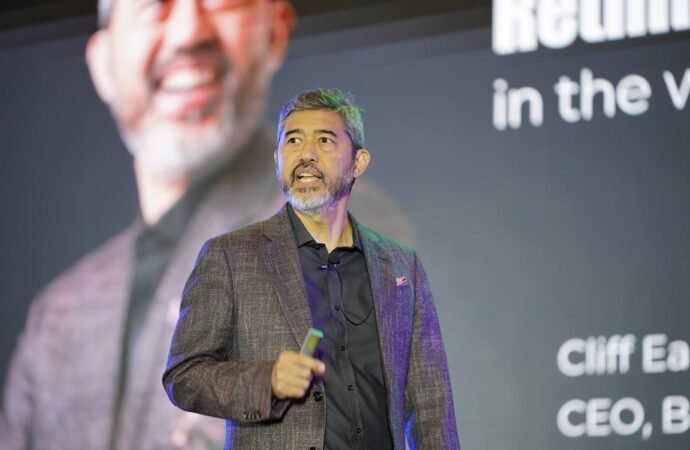Sprout’s 3,819-Employee Study Reveals Human Connection Trumps Technology in Post-Pandemic Retention Crisis. [Manila, June 2025] – In a striking contradiction to Silicon Valley’s tech-first workplace revolution, new research reveals that as AI adoption soars to 62% across Filipino workplaces, employee retention depends more on workplace friendships than cutting-edge features. The finding emerges from the 2025
Sprout’s 3,819-Employee Study Reveals Human Connection Trumps Technology in Post-Pandemic Retention Crisis.
[Manila, June 2025] – In a striking contradiction to Silicon Valley’s tech-first workplace revolution, new research reveals that as AI adoption soars to 62% across Filipino workplaces, employee retention depends more on workplace friendships than cutting-edge features.
The finding emerges from the 2025 State of HR Report prepared by Sprout Solutions and BS Works—the country’s most comprehensive workforce study involving 3,819 employees—unveiled at the State of HR Summit 2025. The research exposes what analysts call “The Great AI Retention Paradox”: while companies pour resources into AI-powered productivity tools, workers stay or leave based on fundamentally human factors.
The numbers tell a compelling story: Employees with three or more workplace friendships are 40% more likely to remain beyond five years, while those citing “sadness at leaving colleagues” as a retention factor outnumber those motivated by salary increases 3:1.
The Connection-Retention Formula
The research reveals “The 3 C’s of AI-Era Retention”: Connection, Contribution, and Community. Organizations scoring highest across these human-centered metrics show 35% lower turnover rates, even when offering below-market compensation.
Connection: Employees embedded in 1-3 workplace social groups demonstrate significantly longer tenure, with each additional meaningful relationship correlating with 8 months of extended employment.
Contribution: Workers reporting clear purpose and meaningful contribution stay 2.3 times longer than those focused primarily on career advancement or salary growth.
Community: Organizations fostering informal support networks see retention rates climb despite offering fewer remote work options than competitors.
“Companies implementing AI to boost efficiency while neglecting human connection are optimizing for the wrong variables,” explained Patrick Gentry, CEO of Sprout Solutions.
Generational Divide Reveals Leadership Evolution
The study uncovers striking generational differences challenging traditional management. While Baby Boomers prefer independent, low-context leadership environments, Millennials and Gen Z gravitate toward collaborative, high-context workplace cultures—coinciding with AI-augmented work environments.
“Gen Z workers don’t want AI to replace human interaction—they want it to enable deeper collaboration,” noted Maria Lourdes Ann “L.A.” Cruz, VP of People at Lufthansa Technik Philippines. “The most successful organizations use AI to create more time for meaningful human connection, not less.”
The AI Readiness Gap
Despite widespread adoption, research reveals a critical implementation divide. Organizations perceived as “AI-ready” show 3x higher tool adoption rates and significantly better retention outcomes. However, readiness depends less on technology infrastructure and more on change management and cultural preparation.
This aligns with recent MIT research showing successful AI implementation correlates more strongly with organizational culture than technical capability—positioning the Philippines data as a leading indicator for global workforce trends.
Global Implications for the $720B Talent Crisis
The findings arrive as global organizations grapple with what McKinsey estimates as a $720 billion annual cost from employee turnover. While most retention strategies focus on compensation and benefits, the Philippine data suggests a fundamentally different approach.
“If these patterns hold globally, we’re looking at a complete rethinking of retention strategy,” said Kislay Chandra, Chief Operations Officer of Sprout Solutions. “The solution isn’t more sophisticated AI tools—it’s more sophisticated human connection.”
Actionable Framework for Leaders
Based on the research, Sprout and BS Works developed the “HUMAN Protocol” for AI-era retention:
Host regular cross-functional social interactions; Understand individual purpose and contribution motivations; Measure and foster workplace friendship networks; Align AI implementation with human connection goals; Nurture interest-based communities and support groups
Early adopters report 25% improvement in retention metrics within six months.
Building on Success
The State of HR Summit 2025, co-presented with BS Works, brought together 500+ HR and business leaders at Manila’s Crowne Plaza Galleria. The event featured panels on “Lead to Last: Retaining Talent Through Empowered Leadership” with executives from Tala, Canva, and Lufthansa Technik Philippines, exploring practical applications of the research findings.
The summit builds on the momentum of 5 consecutive annual State of HR events hosted by Sprout Solutions, while introducing new data-driven insights for organizations navigating the intersection of AI adoption and human-centered workplace culture.
Sprout Sidekick Central
The event also saw the unveiling of Sidekick Central, a multi-functional AI platform offering specialized AI-Sidekicks for HR, payroll, management, and employee support that will help teams achieve up to 40% productivity gains and reduce repetitive admin across operations.
Report Access: The full State of HR Report 2025 is available here: https://bit.ly/SOHRReportMedia







Leave a Comment
Your email address will not be published. Required fields are marked with *